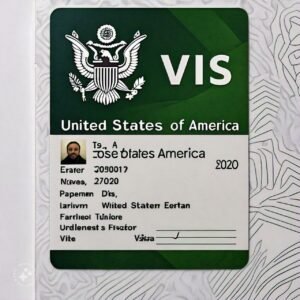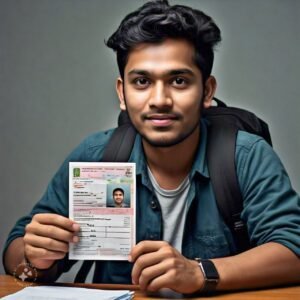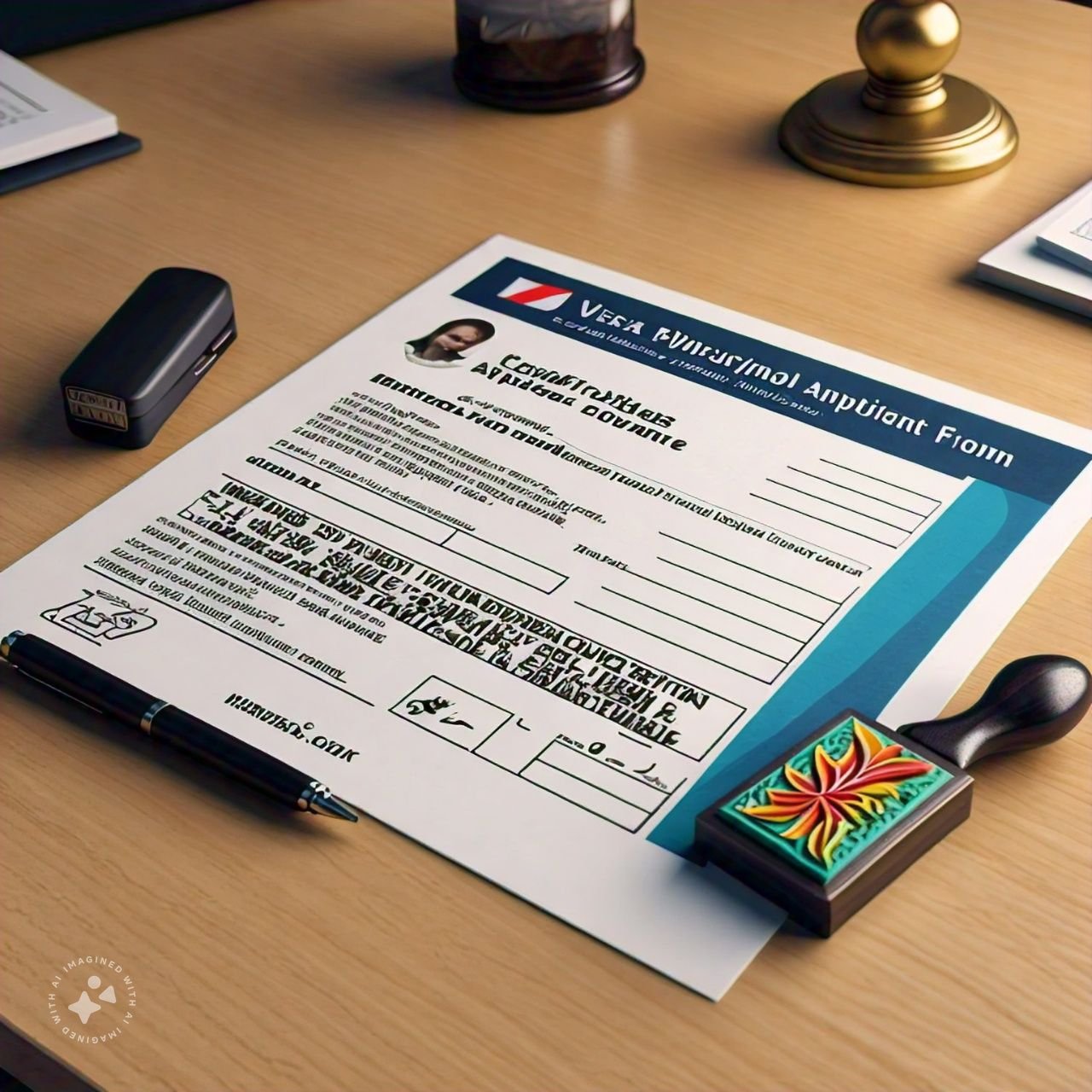Introduction: Tourist Visas Eligibility Requirements
Tourist visas allow travelers to visit foreign countries for leisure and exploration. Each country has specific eligibility criteria for granting these visas. Meeting these requirements is essential to avoid delays or rejection.
Applicants must possess a valid passport with at least six months of validity. Many countries also require proof of financial stability, such as bank statements, to ensure you can support your stay. This evidence demonstrates that you won’t become a burden on the host country.
In addition to financial proof, applicants often need to present a detailed travel itinerary. This includes accommodation details, flight bookings, and planned activities. Some nations may also require travel insurance to cover potential medical emergencies during the trip.
Lastly, many countries require a return or onward ticket. This shows that you intend to leave the country after your visit. Some countries may also check your criminal record to ensure you pose no threat to their security.
Ensuring you meet all these eligibility requirements will improve your chances of obtaining a tourist visa. Preparing thoroughly will make the process smoother and less stressful.
read more : Types of Merit-Based Scholarships
What is a Tourist Visa?
A tourist visa is an official document that allows entry into a foreign country for leisure purposes. It permits short-term stays for activities such as sightseeing, visiting family, or attending events. Each country sets specific conditions for tourist visas, including the length of stay and permissible activities.
Typically, tourist visas do not allow work or study in the host country. They are designed solely for temporary visits. The visa is either a stamp in your passport or an electronic document linked to your travel records. The method of issuance varies by country, and the application process can differ significantly.
Many countries offer different types of tourist visas, including single-entry and multiple-entry options. Single-entry visas allow one-time entry, while multiple-entry visas permit several entries within a designated period. Some nations also provide visas on arrival, where the document is issued upon reaching the destination.
Applying for a tourist visa requires careful planning and attention to detail. Understanding the specific requirements of the destination country is crucial. A well-prepared application increases the likelihood of approval, ensuring a smooth travel experience. This visa is your key to exploring new places and enjoying memorable adventures.

Types of Tourist Visas
Tourist visas come in various types, each designed to suit different travel needs. Understanding these types helps you choose the right visa for your trip.
Single-entry visas allow you to enter a country only once during a specified period. Once you leave, you cannot re-enter using the same visa. This type is ideal for travelers with a one-time visit plan.
Multiple-entry visas permit several entries into the country during the visa’s validity period. This option benefits those who plan to travel in and out of a country multiple times. It offers flexibility and convenience for frequent travelers.
Visa on arrival is issued when you reach your destination, simplifying the application process. However, not all countries offer this option, so research beforehand. This type is convenient for last-minute travel plans but requires proper documentation.
Electronic visas (e-Visas) are obtained online before travel. The process is usually quicker and more efficient than traditional methods. Many countries now offer e-Visas, making it easier to apply from the comfort of your home.
Each type of tourist visa serves different purposes. Choose the one that best aligns with your travel plans to ensure a smooth journey.
Eligibility Requirements
Meeting eligibility requirements is crucial when applying for a tourist visa. These criteria ensure that applicants qualify for temporary entry into a foreign country.
First, applicants must possess a valid passport. The passport should have at least six months of remaining validity. This ensures that the passport remains valid throughout the trip.
Proof of financial stability is another key requirement. Applicants must demonstrate sufficient funds to cover their stay. Bank statements, pay slips, or sponsorship letters can serve as proof. This requirement assures the host country that you won’t need financial assistance.
A detailed travel itinerary is often required. This includes accommodation bookings, flight details, and planned activities. Providing this information shows that you have organized your trip and intend to leave the country as scheduled.
Some countries also require proof of travel insurance. This covers potential medical expenses or emergencies during the trip. Travel insurance adds an extra layer of security for both the traveler and the host country.
Finally, many countries require a return or onward ticket. This proves that you plan to exit the country after your visit. Meeting these eligibility requirements increases your chances of obtaining a tourist visa. Thorough preparation ensures a smoother application process.
Application Process
The application process for a tourist visa involves several key steps. Understanding and following these steps ensures a smoother experience.
First, complete the visa application form accurately. Each country has its own form, usually available online or at embassies. Ensure all personal details match your passport to avoid delays.
Next, gather the required documents. These typically include your passport, recent photos, financial statements, and a detailed travel itinerary. Some countries may request additional documents, such as a letter of invitation or proof of travel insurance.
After collecting the necessary documents, submit your application. This can be done online, by mail, or in person at the nearest embassy or consulate. Pay the visa fee during submission, using the specified payment method. Fees vary by country and visa type, so check the exact amount beforehand.
In some cases, you may need to attend an interview. The interview usually takes place at the embassy or consulate. Prepare to answer questions about your travel plans and financial situation.

Necessary Documents
Submitting the correct documents is essential for a successful tourist visa application. These documents verify your identity, travel plans, and financial stability.
First, a valid passport is required. Ensure your passport has at least six months of remaining validity. This prevents issues with entry into the destination country.
Recent passport-sized photos are also necessary. These photos must meet specific size and format requirements, which vary by country. Follow the guidelines closely to avoid application delays.
Proof of financial stability is another crucial document. Bank statements, pay slips, or a letter from a sponsor can demonstrate your ability to cover trip expenses. This evidence reassures the host country that you can support yourself during your stay.
A detailed travel itinerary is often required. This should include your accommodation bookings, flight details, and planned activities. Providing a clear itinerary shows that you have organized your trip and intend to leave as scheduled.
Many countries also require proof of travel insurance. This covers potential medical emergencies or other unforeseen events during your visit. Travel insurance is often mandatory and adds security for both the traveler and the host country.
Finally, a return or onward ticket is usually required. This proves that you plan to exit the country after your visit, reinforcing the temporary nature of your stay.
you will receive your visa, either as a stamp in your passport or an electronic document.
Processing Time
The processing time for a tourist visa varies depending on the destination country. Understanding this timeline helps you plan your trip effectively.
Typically, visa processing takes anywhere from a few days to several weeks. The duration depends on factors such as the country’s policies, the applicant’s nationality, and the visa type. It’s crucial to apply well in advance of your intended travel date to avoid unnecessary stress.
Some countries offer expedited processing for an additional fee. This option speeds up the application review but isn’t always available. Even with expedited processing, approval is not guaranteed, so consider applying as early as possible.
Delays in processing can occur if the application is incomplete or if additional documentation is required. To avoid these delays, double-check that all forms are filled out correctly and that you’ve included all necessary documents. Respond promptly to any requests for further information from the embassy or consulate.
During peak travel seasons, processing times may be longer due to higher application volumes. Planning ahead by submitting your application early ensures that you receive your visa on time. This foresight allows you to focus on enjoying your upcoming trip without last-minute worries.
Fees and Payment Methods
Understanding visa fees and payment methods is crucial when applying for a tourist visa. These fees vary depending on the destination country and visa type.
First, check the specific fee for the visa you need. Fees can differ based on the length of stay, single or multiple entries, and your nationality. Some countries charge higher fees for expedited processing or additional services, so consider all costs when budgeting for your trip.
Payment methods for visa fees also vary. Most countries accept credit or debit cards, but some may require bank transfers or cash payments. If paying online, ensure that the payment gateway is secure and save any receipts or confirmation emails as proof of payment.
Certain countries require payment in local currency, which might involve additional currency conversion fees. Double-check the payment instructions provided by the embassy or consulate to avoid any issues during the application process.
In some cases, visa fees are non-refundable, even if your application is denied. Therefore, it’s essential to carefully review all application details and ensure accuracy before submitting your payment.
Understanding the fee structure and available payment methods helps you avoid delays and ensures a smooth application process. Planning ahead will make managing visa costs easier and less stressful.
Common Mistakes to Avoid
Avoiding common mistakes during the tourist visa application process can save you time and stress. Understanding these pitfalls helps you prepare a successful application.
First, ensure that your application form is complete and accurate. Incomplete or incorrect information can lead to delays or even rejection. Double-check all details, such as your name, passport number, and travel dates, before submission.
Submitting insufficient supporting documents is another common error. Ensure that you provide all required documents, such as a valid passport, recent photos, financial statements, and a detailed itinerary. Missing or outdated documents can result in processing delays.
Applying too close to your travel date is a frequent mistake. Visa processing times can vary, and applying late may leave you without enough time to receive your visa. To avoid this, apply well in advance of your planned departure.
Not following specific instructions for photo or document formats can also cause issues. Each country has its own requirements, so carefully adhere to their guidelines. This attention to detail ensures that your application meets all necessary criteria.
Finally, neglecting to review and proofread your application can lead to avoidable errors. Taking the time to check everything thoroughly can increase your chances of a smooth and successful visa approval.
Visa Extensions
Visa extensions allow you to extend your stay in a country beyond your original visa’s validity. Knowing the process and requirements for extending your visa is important for a smooth extension.
First, check if your current visa is eligible for an extension. Not all visas can be extended, so review the specific terms and conditions of your visa type. Each country has different policies regarding extensions, so verify the regulations of the country you are visiting.
Apply for the extension before your current visa expires. Many countries require you to submit your extension application well in advance of your visa’s expiration date. This helps avoid any gaps in your legal status while in the country.
Prepare and submit the necessary documents for the extension. This usually includes a completed application form, proof of financial stability, and valid reasons for extending your stay. Some countries may also require additional documentation, such as a new travel itinerary or accommodation details.
Be aware that visa extensions often involve additional fees. Pay these fees according to the instructions provided by the immigration authorities.
Finally, monitor the processing time for your extension application. Processing times can vary, so plan accordingly to ensure you remain in legal status.
Conclusion
Understanding the tourist visa process is essential for a successful travel experience. By following the guidelines provided, you can ensure a smooth application process and avoid common pitfalls.
First, carefully review the different types of tourist visas available. Choose the one that best suits your travel needs and plans. Each type offers unique advantages, so select accordingly to match your itinerary.
Next, ensure you meet all eligibility requirements before applying. This includes having a valid passport, proof of financial stability, and a detailed travel itinerary. Proper documentation increases your chances of visa approval.
Pay close attention to the application process. Complete forms accurately, submit all necessary documents, and adhere to payment instructions. Applying early helps avoid delays and last-minute issues.
Be mindful of common mistakes and avoid them by double-checking your application details. Pay careful attention to document requirements and ensure everything is in order.
If needed, explore options for visa extensions and understand the associated procedures. Extending your visa requires timely action and adherence to local regulations.
By staying informed and organized, you enhance your chances of obtaining a tourist visa and enjoying your trip. Planning ahead and following the guidelines ensures a positive travel experience.
Frequently Asked Questions (FAQs)
1. What is a tourist visa?
A tourist visa allows entry into a foreign country for leisure purposes. It typically permits short-term stays for activities like sightseeing and visiting friends.
2. How do I apply for a tourist visa?
To apply, complete the visa application form, gather required documents, pay the fee, and submit your application to the embassy or consulate. Some countries offer online applications.
3. What documents do I need for a tourist visa?
Common documents include a valid passport, recent passport-sized photos, proof of financial stability, a detailed travel itinerary, and sometimes travel insurance.
4. How long does it take to process a tourist visa?
Processing times vary by country and visa type, ranging from a few days to several weeks. Apply well in advance of your travel date to avoid delays.
5. Can I extend my tourist visa?
In some cases, you can apply for a visa extension before your current visa expires. Check the specific regulations of the country you’re visiting for extension policies.
6. What are common mistakes to avoid when applying for a tourist visa?
Avoid incomplete applications, missing documents, applying too late, and not following specific instructions for photos or document formats.
7. How much does a tourist visa cost?
Visa fees vary by country and visa type. Check the specific fee for your visa and be aware of any additional charges for expedited processing.
8. What if my tourist visa application is denied?
If denied, review the rejection reasons, correct any issues, and reapply if eligible. Some countries allow appeals or reapplications, so check their procedures.
9. Can I work on a tourist visa?
No, a tourist visa typically does not allow you to work or study. It is meant for temporary visits only.
10. Do I need travel insurance for a tourist visa?
Many countries require proof of travel insurance to cover medical emergencies and other risks. Check the specific visa requirements of your destination.
